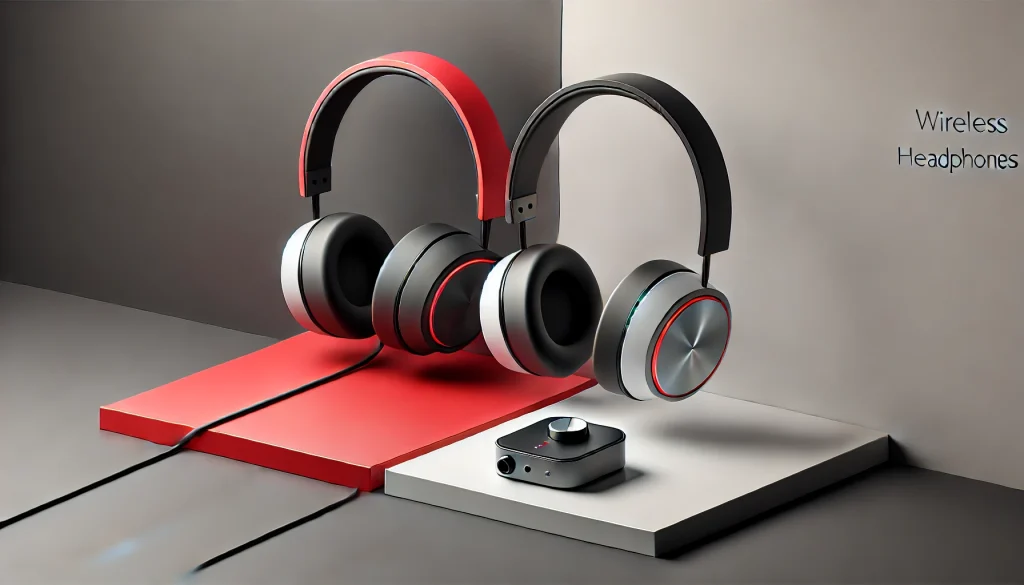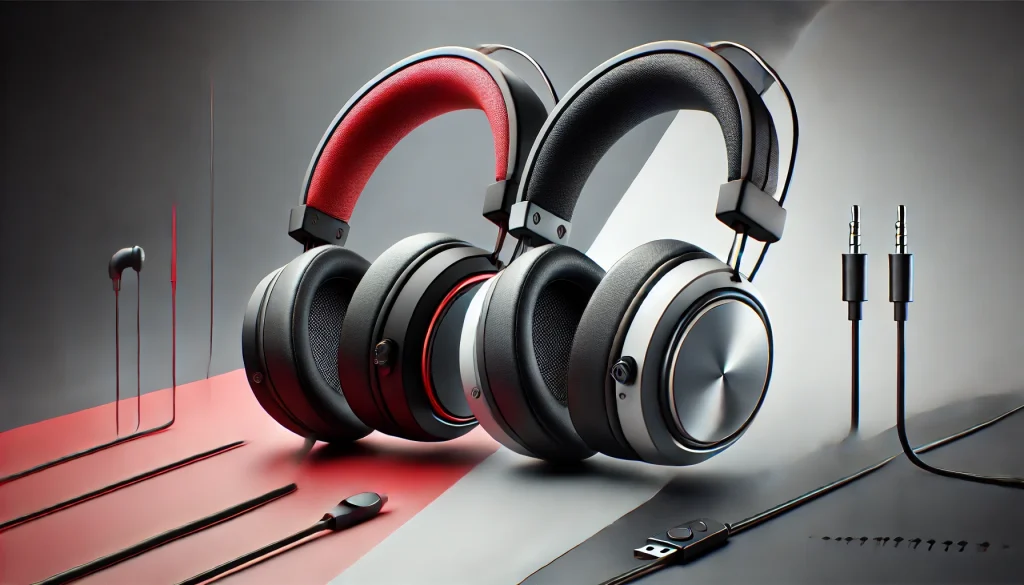
In recent years, the headphone industry has seen groundbreaking changes, with a significant debate surrounding the choice between wired and wireless headphones. Both types have their champions—audio purists often swear by the consistent sound quality of wired headphones, while others enjoy the freedom and convenience of wireless models. This comparison dives into these two popular choices to provide a clear picture of which one might be better suited for different users.
Overview

Wired and wireless headphones each cater to different preferences and needs, offering distinct features and advantages. Wired headphones are known for providing high-fidelity audio, with the ability to deliver detailed, consistent sound without the need for batteries. In contrast, wireless headphones offer mobility, with Bluetooth connectivity allowing freedom from tangled cables.
This overview discusses the benefits and specifications of both types, including sound quality, battery life, portability, and connectivity. Both have made significant advancements, making them suitable for various use cases, from casual listening to professional audio work.
Comparison of Wired Headphones and Wireless Headphones

When comparing, it’s essential to assess their key characteristics to determine the best choice.
1. Sound Quality
Wired headphones generally deliver higher-quality sound because they avoid Bluetooth compression. Audiophiles appreciate the fidelity offered by wired options, making them the choice for studio work and critical listening. Wireless headphones, while improving due to advanced Bluetooth codecs like aptX and LDAC, often experience slight quality degradation.
2. Convenience and Portability
Wireless headphones lead in convenience, allowing users to listen to music while moving without getting tangled up in wires. Many models offer seamless Bluetooth pairing, and some support multipoint connections for easy switching between devices. However, wired headphones are preferred for use in stationary settings like studios due to the absence of battery requirements.
3. Battery Life
A significant difference is the reliance of wireless headphones on batteries. Wireless options typically offer between 20-40 hours of playtime but require regular charging. However, are always ready for use as long as they’re plugged in.
4. Latency
Wired headphones provide near-zero latency, making them ideal for gaming, studio work, or watching videos without sync issues. Wireless headphones, on the other hand, may experience slight delays, especially on lower-end models, although higher-end models with advanced codecs reduce this lag.
5. Price
Wired headphones generally come at a lower price point due to their lack of batteries and Bluetooth components. Wireless models, especially high-quality ones, are often more expensive due to additional hardware and battery components.
Pros and Cons
| Feature | Wired Headphones | Wireless Headphones |
|---|---|---|
| Sound Quality | Superior due to direct audio connection | Good, improving with codecs but compressed |
| Convenience | Limited to the length of the cable | Highly portable and convenient |
| Battery Dependency | None, works as long as plugged in | Requires regular charging |
| Latency | Minimal, ideal for sync-critical tasks | Low on high-end models, noticeable on others |
| Cost | Often more affordable | Generally more expensive |
Pros of Wired Headphones
- Superior Sound Quality: Wired headphones are preferred for their consistent sound, free from Bluetooth compression. Many audiophiles and professionals enjoy the clarity.
- No Battery Worries: Users don’t have to worry about charging. They are always ready for use, providing uninterrupted listening experiences.
- Minimal Latency: For activities that require exact audio timing, such as gaming or editing, wired perform without any delay.
- Affordable Pricing: Due to the absence of wireless components, it is generally cheaper than high-quality wireless models.
Cons of Wired Headphones
- Restricted Mobility: Wired headphones tether users to their devices, making it difficult to move freely.
- Cable Wear and Tear: Over time, cables can become tangled, frayed, or damaged, affecting the overall durability of wired models.
- Compatibility Limitations: Many modern devices, such as recent smartphones, lack headphone jacks, requiring adapters or dongles for wired connections.
In-Depth Analysis
Design: Wired are often designed with audio quality as a primary focus, utilizing larger drivers and sound-focused materials. Wireless headphones, however, balance style with portability, often including collapsible designs for easy storage.
Functionality: Wired headphones operate seamlessly without the need for pairing or charging, while wireless depend on Bluetooth. Many wireless models now support features like active noise cancellation and customizable sound profiles.
Sound Quality and Performance: Wired models typically deliver richer, more accurate sound, with no risk of audio compression. Wireless models are improving in sound fidelity, particularly with advancements in Bluetooth technology and better codecs.
Usability: For stationary listening, wired offer a straightforward, uninterrupted experience. Wireless headphones, however, are more suited for active, on-the-go listening, especially with features like hands-free calling.
Conclusion
In summary, both wired and wireless headphones offer valuable advantages and disadvantages. For those who prioritize sound quality and don’t want to worry about charging, wired headphones are often the preferred choice. For users who value mobility, convenience, and modern features, wireless headphones offer a versatile listening experience.
The choice ultimately depends on personal preference and use case, but audio purists may still find themselves leaning towards the reliability and clarity of wired headphones.
FAQ
Are wired headphones better for sound quality?
Yes, they generally deliver superior sound quality because they avoid compression issues associated with Bluetooth connections.
Why are wireless headphones more convenient?
Wireless headphones provide freedom of movement, allowing users to listen without being tethered to their device, which is ideal for activities on the go.
What are the main drawbacks of wired headphones?
The primary drawbacks include limited mobility, cable durability issues, and compatibility challenges with modern devices that lack headphone jacks.
Resources
- Audio Champs. Which is Better? Earbuds or Wired Earphones.
- CNET. Wireless vs Wired Headphones: Which is Better?.
- Headphonesty. Wired Headphones: Still Better than Wireless?.
- RTINGS. Wired vs Wireless Headphones.
- What Hi-Fi? Wired vs Wireless Headphones.

Brijesh Gohil is the founder of Tech Brij, A popular Tech Blog which is focused on Tech tips & Buying Guides. You can follow him on Facebook, Twitter, Google + & LinkedIn.

